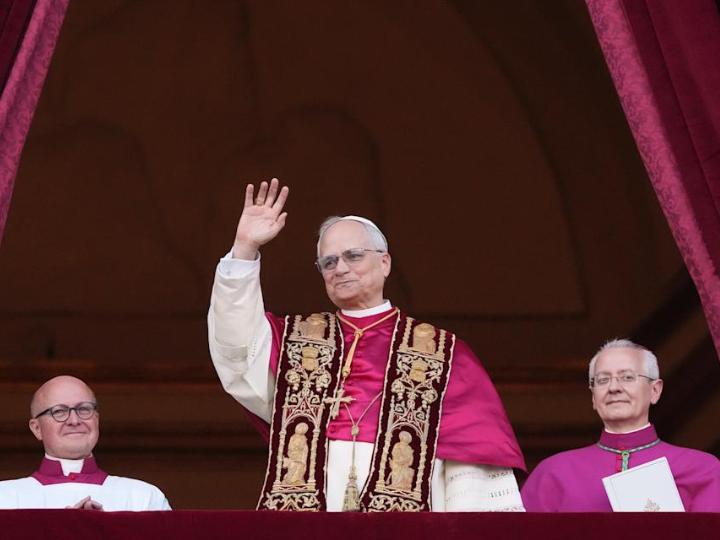by Uwe Bott**
After his election on May 8, Pope Leo XIV bestowed his first papal blessings “Urbi et Orbi” upon the faithful from the central balcony of St. Peter’s Basilica.
Urbi et Orbi translates into “to the City and to the World.” Each papacy is, in part, defined by the new pope’s interpretation of this blessing. Will he be inward-looking at the city or outward-looking at the world?
The first American Pope
Pope Leo XIV certainly is a polyglot. He is, of course, the first American to be elected pope. Leo XIV is also the first pope to hold dual citizenship and, therefore, he also is the first Peruvian pope in history.
Pope Leo XIV lived for over 20 years in Peru. Finally, it has been disclosed in recent days that Leo XIV has Creole roots on his maternal grandparents’ side.
It is another interesting aspect of the new pope’s life that he received a Bachelor of Science degree in mathematics in 1977 before he made his solemn vows in 1981. This makes Pope Leo XIV a man of science as well as faith.
It is likely that all of this made Cardinal Robert Francis Prevost so unique and timely in the eyes of his fellow cardinals during the conclave that they elected him with over 100 votes in the final ballot, far more than the necessary 2/3 majority of 89 votes according to the Cardinal of Madagascar.
Nationalism (“Urbi”) vs. globalism (“Orbi”)
We live in a time where our exponentially advancing technology brings us closer and closer together. And yet, the resulting dislocation and disorientation has led many people in more and more countries to choose leaders who appeal to nationalism (“Urbi”) rather than globalism (“Orbi”).
At the same time, there is a clash of science and humanity. More jobs are eliminated in advanced countries by progress in technology than by labor migration from foreign lands or by transfer of labor to lower cost countries.
And yet, as workers (blue collar and white collar alike) grow ever more anxious about the future, this development has opened the political space to populist demagogues who tout xenophobia and nationalism — all falsely claiming to lift the fortunes of the aggrieved by expelling those from foreign soil and by going it alone.
The U.S. in denial
Especially, in the United States, the denial of science is widespread, from climate change to vaccines and even to the shape of the earth. As many as 11% of Americans believe the earth is flat.
At the same time, there are clearly many Americans who prefer to be inward-looking in a desperate attempt to preserve that which they have long lost, not due to the invasion of foreign labor, but to technology in a post-industrial revolution.
Most Americans have, therefore, chosen a political leader who preaches isolationism rather than integration, stubborn insistence on a return to the past rather than leadership into a more humane future and sad solitude instead of joyful community. Not Urbi et Orbi, just Urbi.
In a short while, this political leader has impoverished Americans, not just materially but in their souls and hearts.
Plutocrats cloaked in a mantle of false promises
Unlike the story of St. Francis, the man to whom Leo XIV’s predecessor, Pope Francis, dedicated his life and papacy, and whose name Pope Leo XIV holds as his given, middle name, modern plutocrats do not dismount their horses to give their expensive cloaks to the poor in an act of compassion. Instead, they ride right past them cloaked in a mantle of false promises.
As an atheist, I look with some optimism at the moral leadership Pope Leo XIV can bring to the table, if he so chooses. Cardinal Prevost’s choice of following the footsteps of Pope Leo XIII gives me hope because it was Pope Leo XIII who wrote the papal book on social justice and workers’ rights at the advent of the first industrial revolution.
A globalist pope
As a polyglot — and yes, a globalist — Pope Leo XIV embraces not just the confined Urbi that is Rome, but the world.
As a scientist, asocial worker and a spiritual guide he acknowledges the progress that applied science brings — but fully understands the risks and reasonable fears that this technological advancement and, especially artificial intelligence, creates for all of us.
If the cardinals in the conclave were right, the desire of people in advanced and emerging countries alike to play a meaningful role in a world ever more dominated by technology can only be addressed by respecting each other, not by resorting to hatred for each other.
If the cardinals in the conclave were right, globalists not nationalists must set the tone that people will want to follow.
And if the cardinals were right, it will be this American pope who will make America and the world better again.
An alternative model
He could be an alternative model to the recessive vision of nationalist leaders and look at the world as a true globalist following the African proverb: “If you want to go fast, go alone. If you want to go far, go together.” Urbi et Orbi!
*first published in TheGlobalist
**Chief Economist of The Global Ideas Center and Senior Editor at The Globalist. [New York/United States]




 By: N. Peter Kramer
By: N. Peter Kramer
